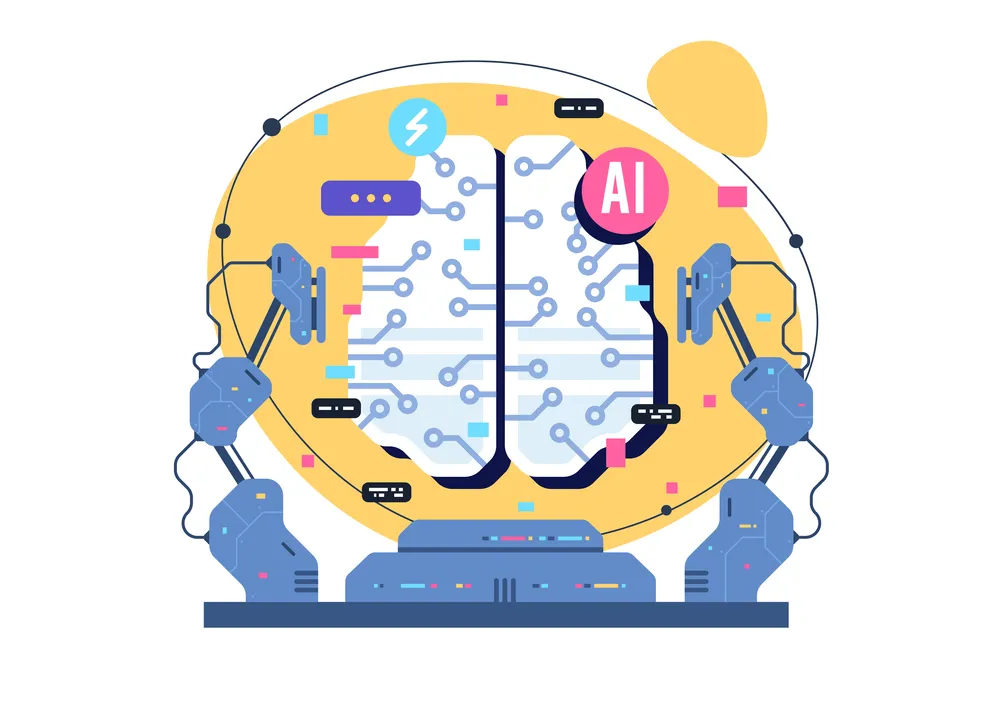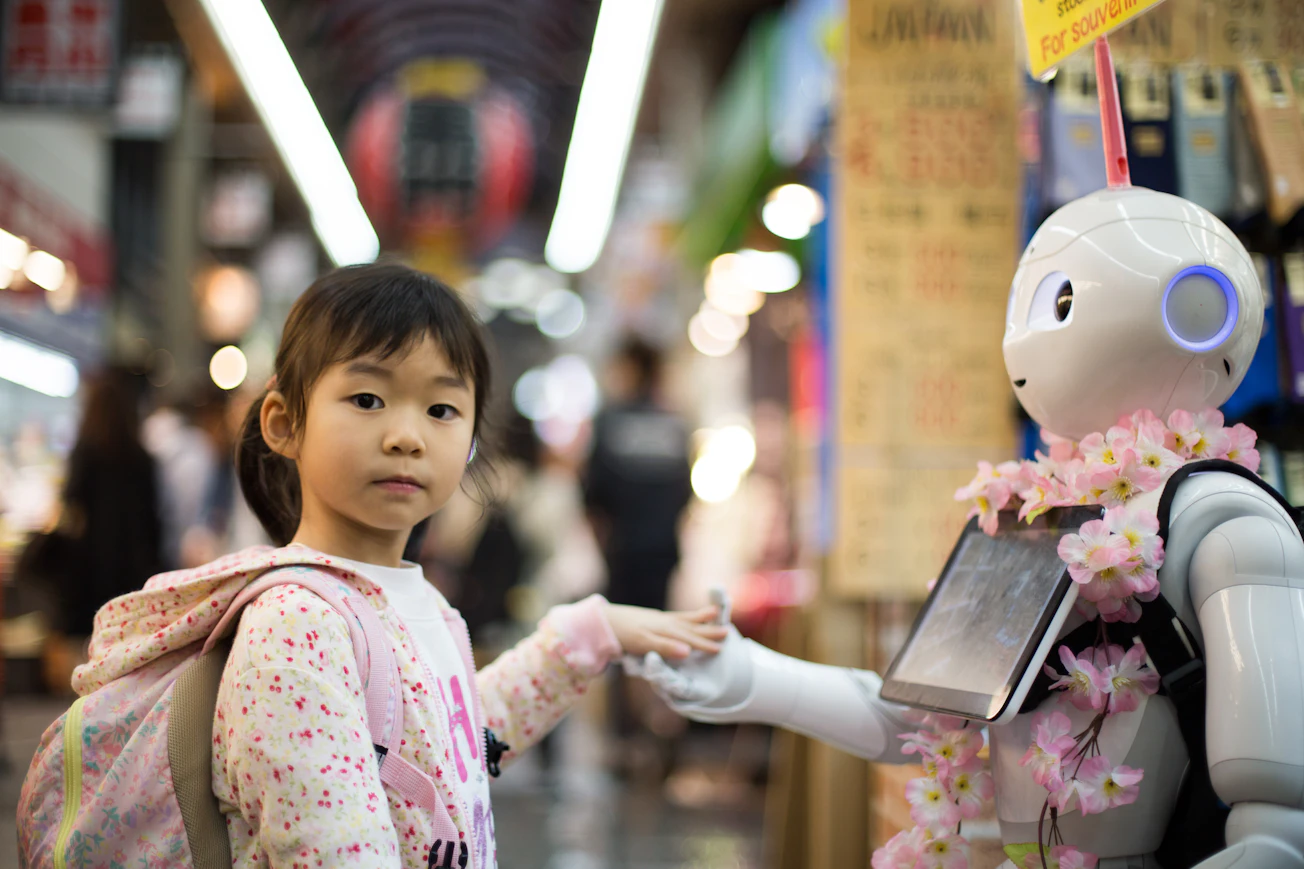Key TIPP Poll Statistics
- 83% of Americans claim to have a good idea of what artificial intelligence is
- 49% agree that AI is good for the economy and humanity, while 34% disagreed
- 66% express unease regarding AI-powered products and services
- 72% express concerns about the increasing use of artificial intelligence in the world
- 39% fear job replacement by AI
- Over two-thirds (68%) support stricter government regulation of artificial intelligence
AI is a term that is being bandied about more frequently than ever before. But, few know what it is, though many are using its services and product unaware.
Artificial intelligence, or AI, refers to computer systems and programs that can perform tasks that would typically require human intelligence and inputs like understanding and interpreting human language, recognizing images, giving appropriate solutions, learning from experience, and solving complex problems.
These evolving systems are capable of mimicking certain aspects of human intelligence. They can analyze data, see patterns, and make predictions at breakneck speed, too, with minimal human intervention. AI-powered machines and computers can automate processes relieving humans of mundane, repetitive, and often time-consuming tasks.
AI In Everyday Use
AI-powered systems have already been deeply integrated into our daily lives, though many of us are unaware of their prevalence. AI algorithms are constantly working behind the scenes to enhance our user experience in domains as varied as entertainment, customer service, and e-commerce.
AI systems and networks often power automated services and applications. For instance:
- Virtual Assistants like Amazon’s Alexa and Apple’s Siri are AI-powered. They can control small home devices and set reminders based on voice commands.
- Self-drive or autonomous vehicles Tesla and Google’s Waymno navigate busy roads, detect and avoid obstacles, and make real-time decisions.
- Many companies use Customer Service Chatbots to interact with customers, provide support, and answer queries, freeing up manpower and improving customer service efficiency.
- Recommendation Systems are used by OTT platforms and streaming services like Amazon and Spotify to analyze user preferences and make personalized recommendations.
Besides these functions, AI is being used by banks and credit card companies to detect fraud. In healthcare, machine learning, data analysis, and prediction capabilities help in medical image analysis, disease diagnosis, and continuous health monitoring. AI-powered Natural Language Processing (NLP) facilitates language translation, chatbots, voice assistants, and text analysis.
And this is just the tip of the iceberg. The technology, still in its nascent stage, is making great strides and is indispensable to sectors as far-reaching as manufacturing, education, entertainment, and cyber security.
A recent TIPP Poll asked over 1205 Americans their views on AI. The survey found that a majority had a good idea of what artificial intelligence is, with 83% saying they do. But, 14% of the respondents did not think they understood AI well, and 4% were unsure.
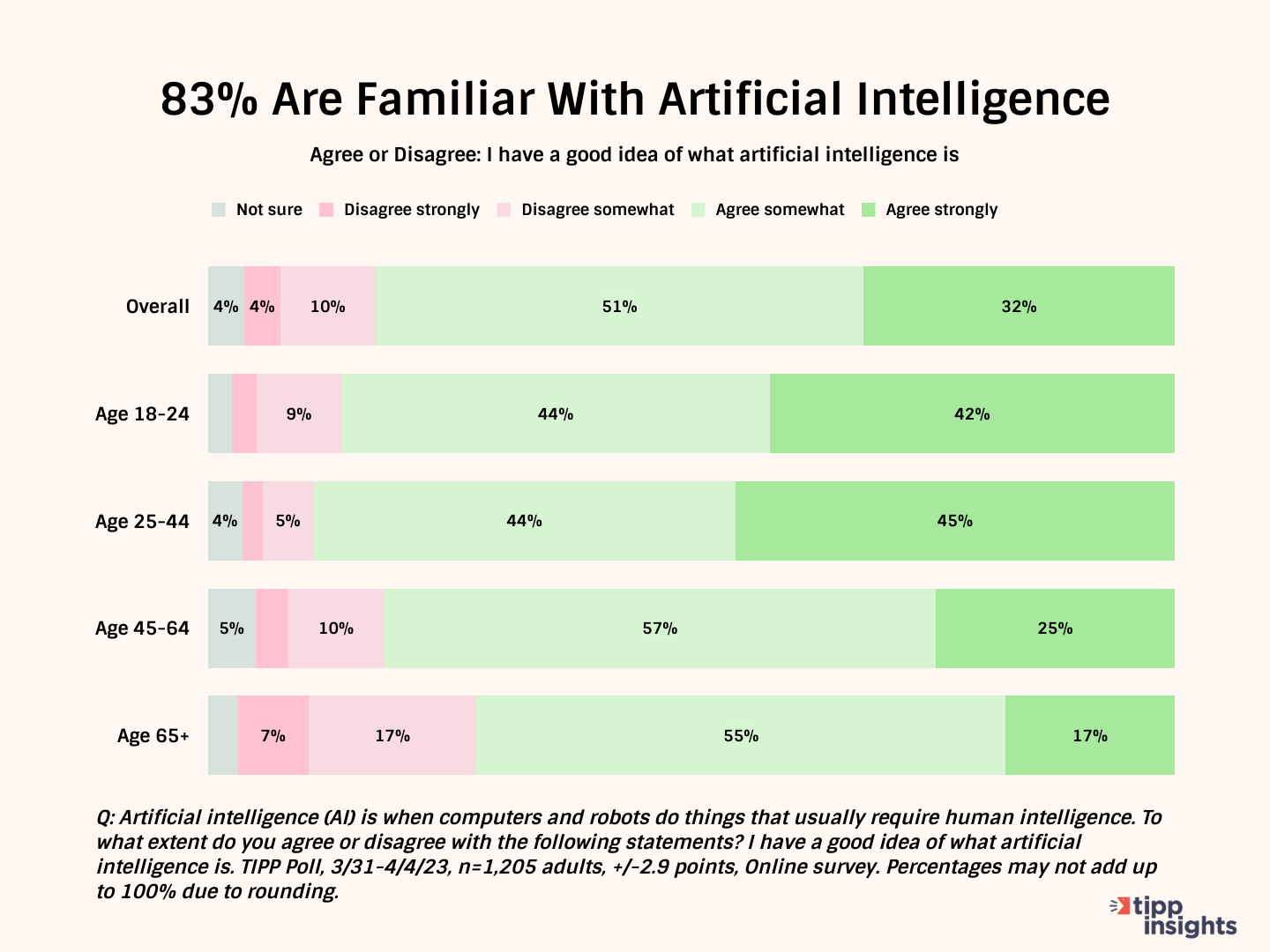
Advantages Of AI-Powered Systems
With AI providing so many advantages to companies and customers, it is safe to say that the tech will only grow and flourish. Some of the most commonly cited advantages of machine learning and AI-powered systems are:
- Improved efficiency and accuracy
- Automation, thereby reducing manpower
- Predictive capability
- Personalization and customization providing enriched user experiences
- Efficient customer services
- Data Analysis and insights
- Scalability
- Risk mitigation
Despite AI’s numerous advantages to various services and products, some skepticism exists regarding its use. The TIPP Poll asked, “To what extent do you agree or disagree with the following statement? Generally speaking, AI is good for the economy and humanity.”
- Agree 49%
- Disagree 34%
- Not sure 17%
About half believe that AI is good for the economy and humanity. Only a third of the seniors (65+) feel that artificial intelligence is beneficial. More than half, 54%, with a college education see the advantages of AI as positive.
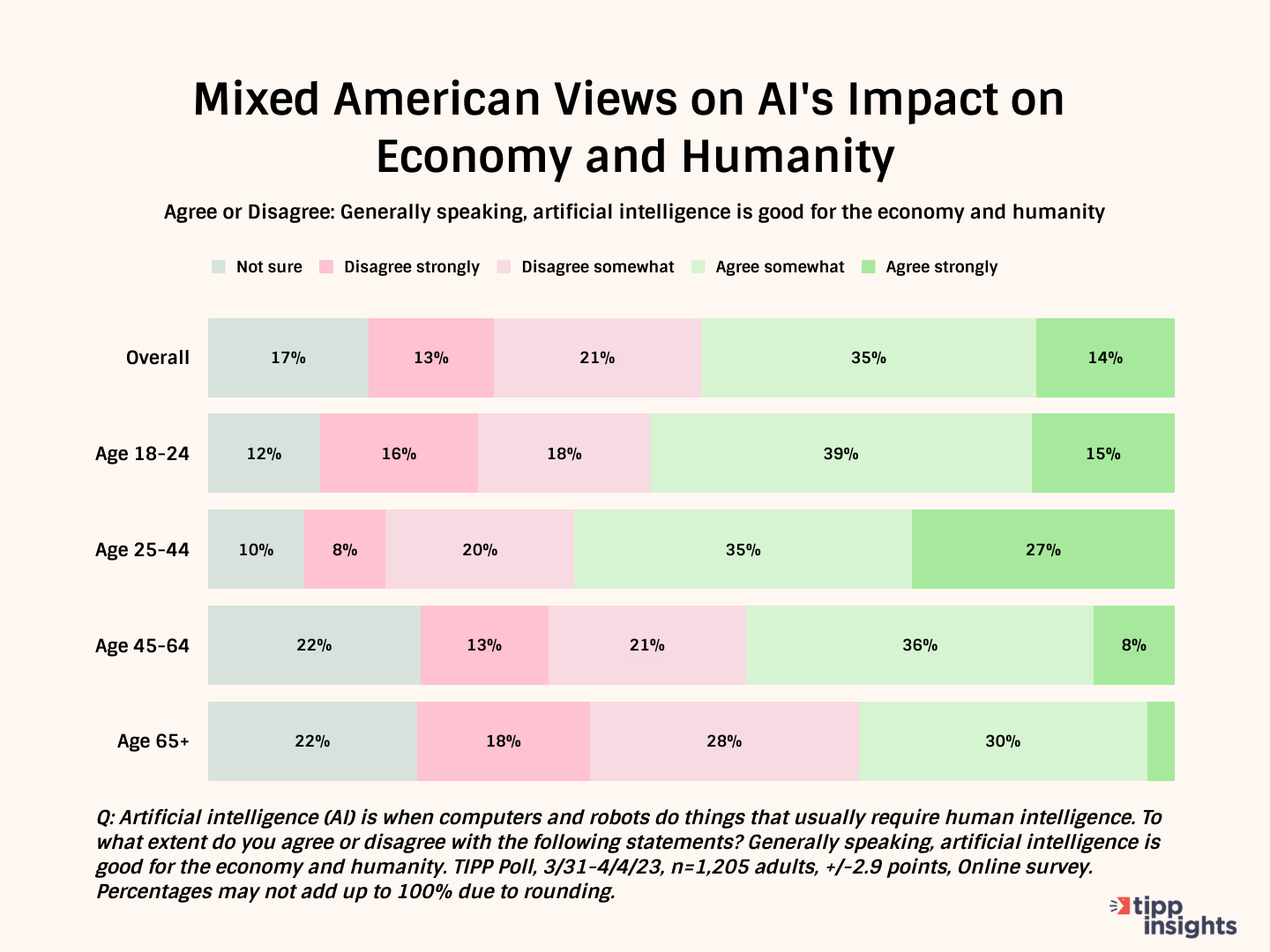
When probed further, the survey found that the misgivings run deep. When asked, “To what extent do you agree or disagree with the following statement? I am concerned about the increasing use of artificial intelligence in the world in general. ” The responses were,
- Agree 72%
- Disagree 21%
- Not sure 7%
Despite the many advantages of self-learning and smart machine networks, these concerns are not baseless. They are not without pitfalls, as experts caution.
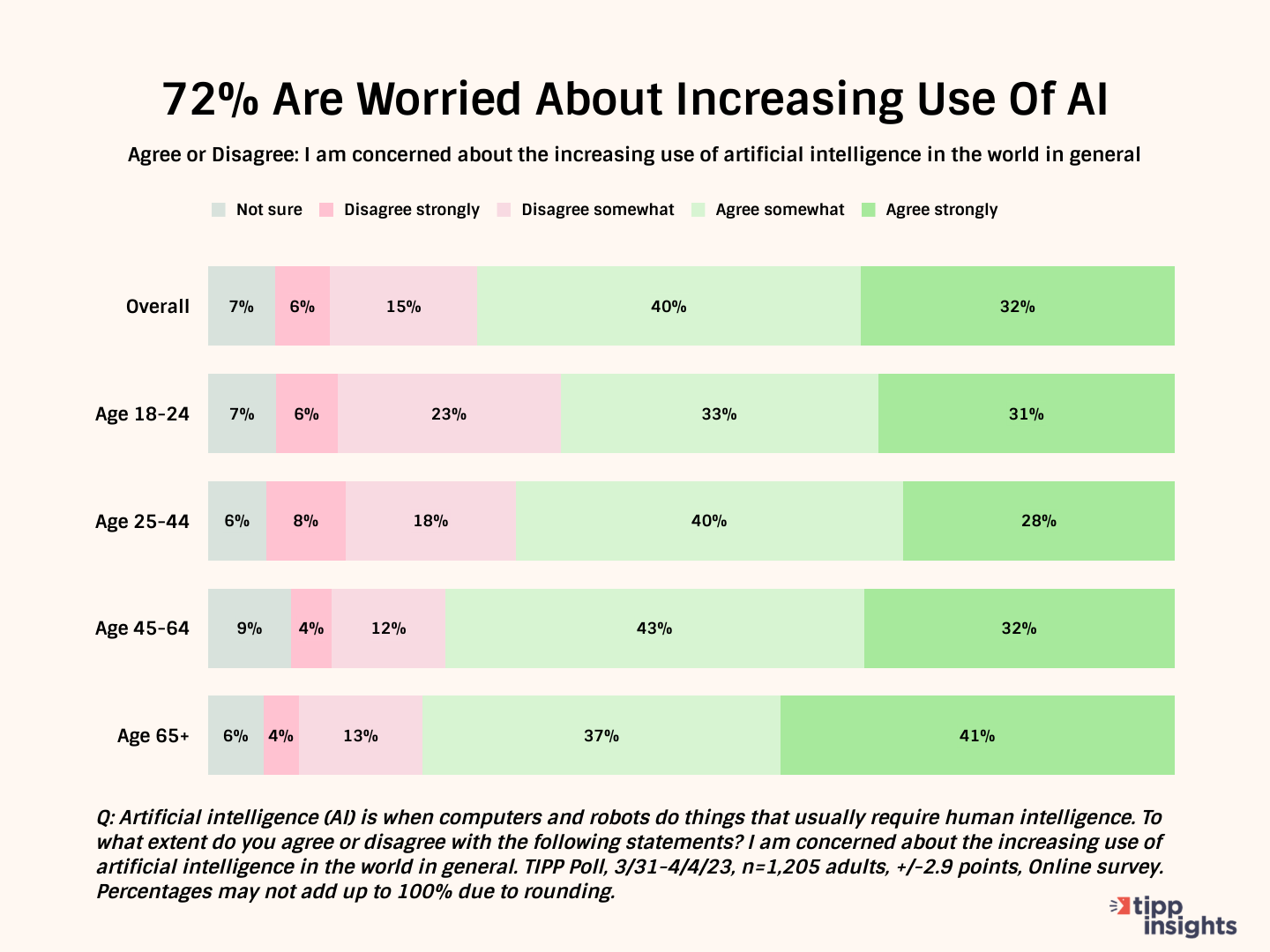
Despite the popularity of AI-powered devices and services, the TIPP Poll found that it made two-thirds of the people uneasy. Lack of familiarity, data security concerns, limited experience with technology and electronic devices, and diminishing human interaction are common reasons that make people uncomfortable with the evolving tech.
To the question, “To what extent do you agree or disagree with the following statements? Products and services using AI make me nervous:
- Agree 66%
- Disagree 28%
- Not sure 6%
Surprisingly, all age groups, ranging from 18 to seniors, were polled above 60% regarding nervousness. Another interesting observation was that people across all educational backgrounds also expressed similar levels of unease.
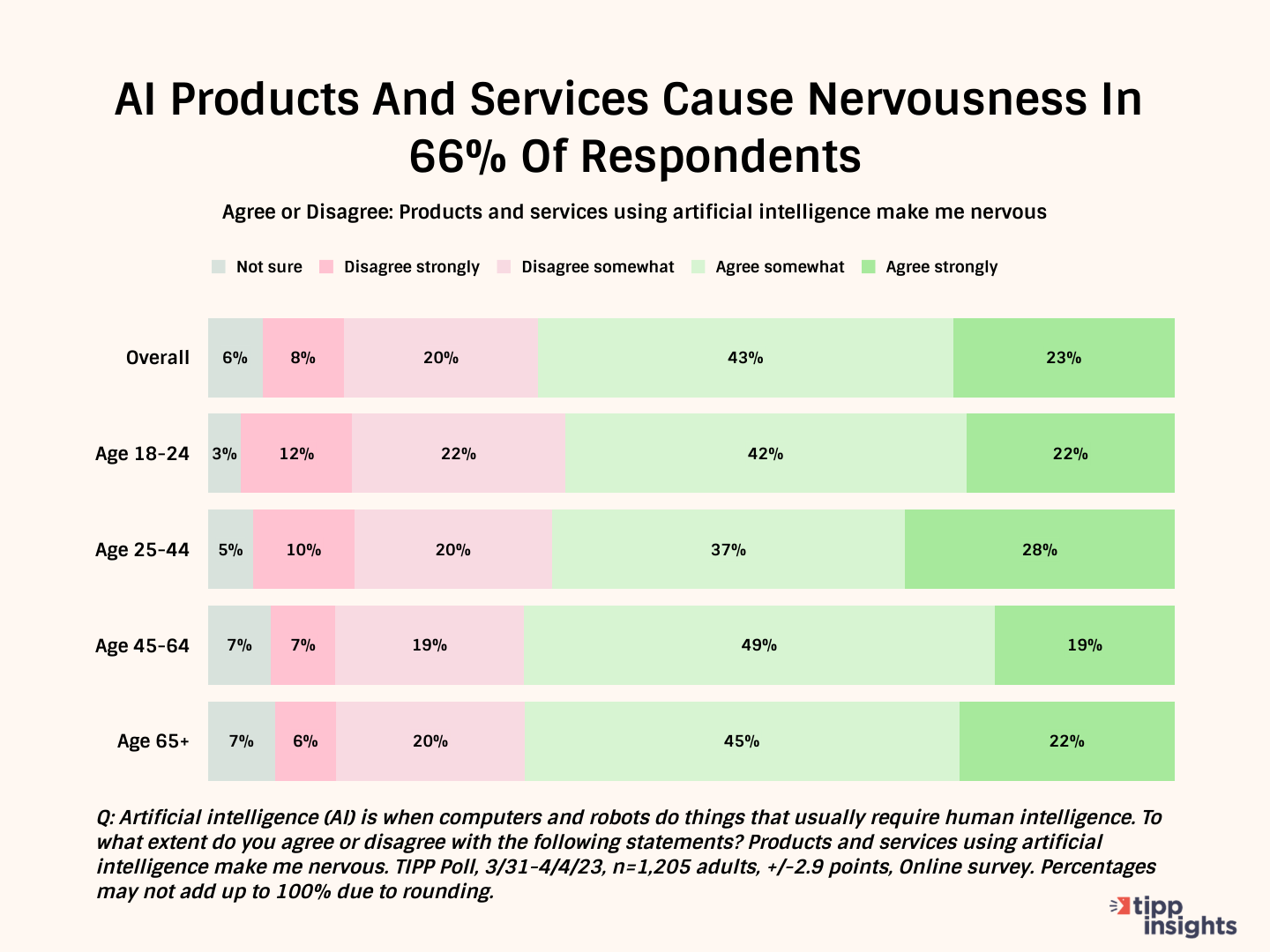
Disadvantages Of AI-Powered Systems
There is a downside to this emerging technology. Even as machines learn and become more complex, it is often pointed out that AI-powered systems lack empathy and contextual understanding.
Other most commonly cited drawbacks associated with AI’s development and deployments are:
- Lack of transparency
- Security risks
- Reliance on data and infrastructure
- Job displacement
- Bias and discrimination
The fear that automation will make many jobs redundant and curtail staff requirements in many sectors is prevalent. The TIPP Poll found that more than a third worried about losing their job to AI. To the question, “To what extent do you agree or disagree with the following statement? I fear AI may replace my job” The responses read:
- Agree 38%
- Disagree 46%
- Not sure 14%
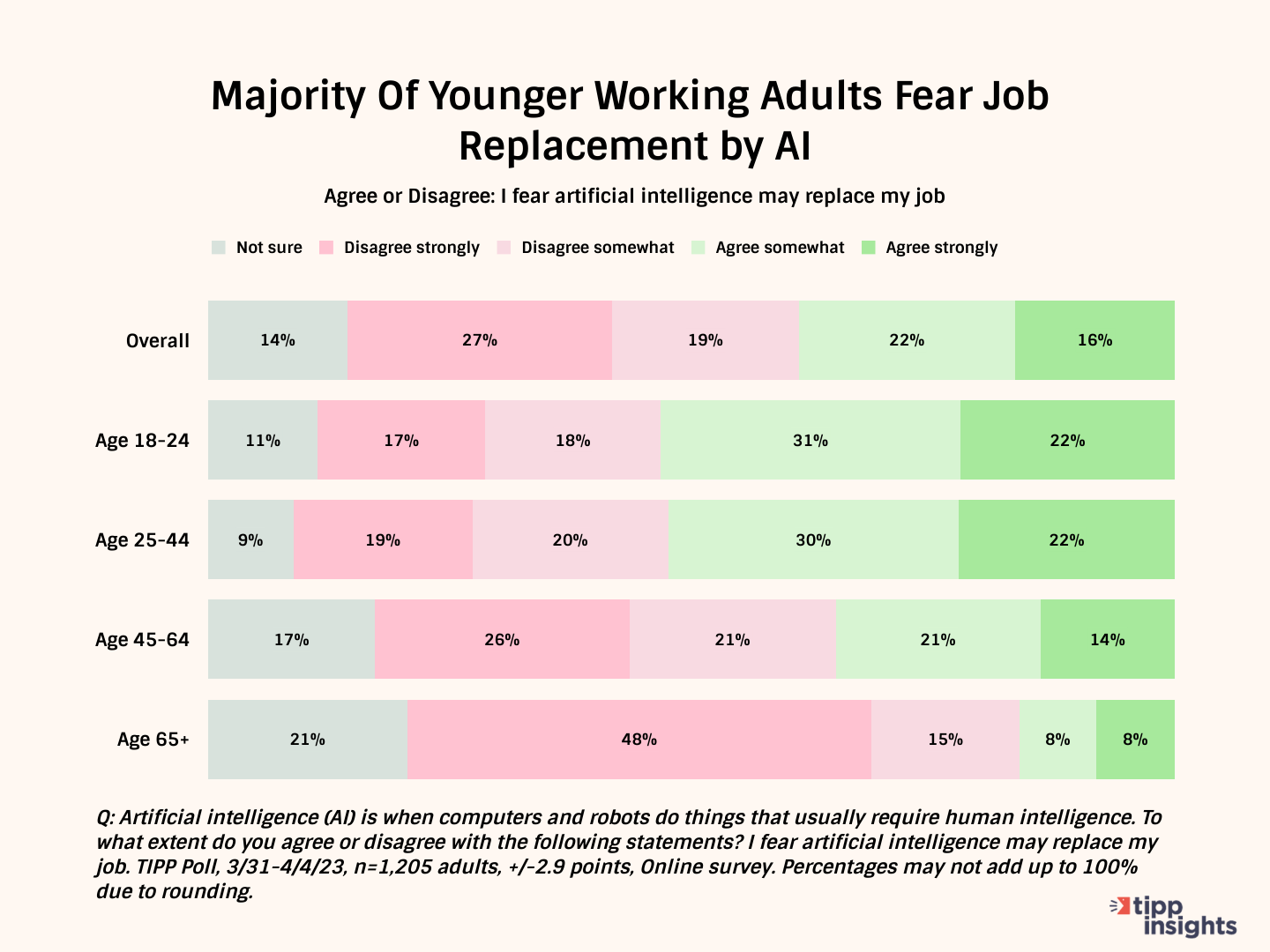
Why Are Regulations Necessary?
The as-yet unknown and perceived unlimited scope of the technology make it necessary for proper frameworks within which the new tech can develop without compromising privacy, ensuring fair competition and ethical considerations.
The tremendous potential of AI is unquestionable. Yet, its adoption and widespread use could also have significant societal implications. Government must regulate the tech before the genie is out of the bottle. Only stringent rules and policies will be able to
- Safeguard the public interest
- Protect data and privacy
- Address inherent biases
- Fix accountability
- Take up ethical considerations
There is much support for government-led regulation of the AI domain. The TIPP survey found that more than two-thirds wanted the government to intervene. Asked, “To what extent do you agree or disagree with the following statement? The government should regulate the use of artificial intelligence more strictly than it is now,” the data reads:
- Agree 67%
- Disagree 18%
- Not sure 14%
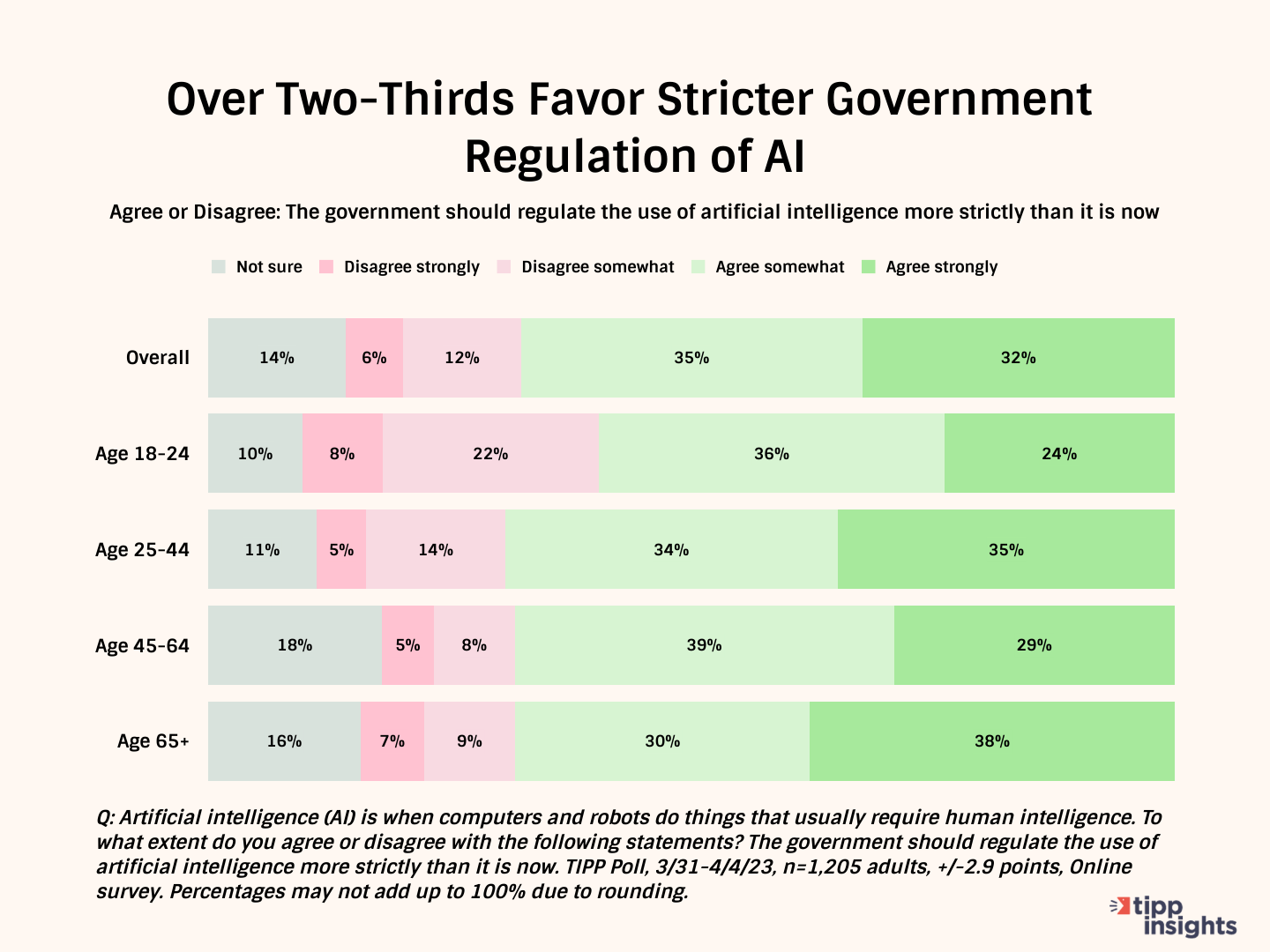
Artificial Intelligence presents a complex landscape. Its potential and as-yet-undiscovered uses hold immense promise for many industries and society. However, addressing the associated risks and challenges as diverse as ethical concerns and job redundancy is crucial. Only if the emerging technology is rolled out ethically and vigilantly would society be able to benefit from its transformative promise.
Like our insights? Show your support by becoming a paid subscriber!

